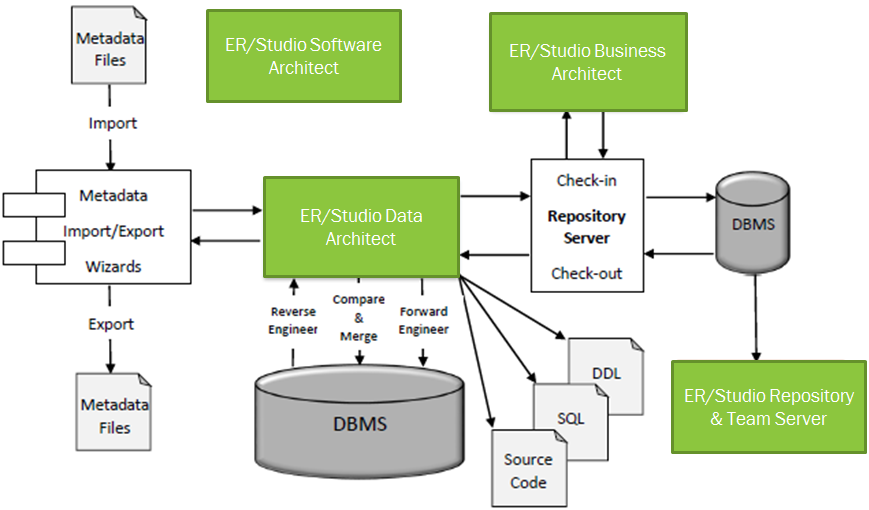Overview of the Team Server Architecture
Go Up to Administrator Guide
Team Server is a web server application that extends the information in the Team Server Repository with a broader range of stakeholders. You can publish selected models to Team Server on a manual or automated basis. Team Server also contains a data catalog and business glossary and allows users to explore the model graphically and ask those important questions such as "Where do we store information on 'Customer'?" or "What does this data mean, and what rules apply to it?"
The following list describes the process of creating and accessing the metadata:
- Data Models are created and maintained by ER/Studio Data Architect clients.
- That metadata is stored in the Team Server Repository database.
- Admin users can publish Data Models from the Team Server Repository to the Team Server Core front-end.
- Team Server users can then browse, search, and generate reports on the synchronized metadata in the Team Server Reporting Repository.
- Team Server users can also browse for information through the glossaries of Business Terms, navigating the ontology of the terms to then find relates ER Objects in data models.
The Team Server Core database contains properties for logical and physical model ER objects, and is optimized for quick and efficient reporting of business-related metadata. Team Server Core provides easy access, browser and searching features on the ER/Studio Repository metadata, and allows storing and managing reports from previous queries and the metadata they rely on.
- Note: Initially, physical properties that are specific to a relational database platform and/or version will not be extracted from the Repository or transferred to the Team Server Core database.
Team Server is also a communications hub and information center. Activity streams provide the following:
- Add, modify, and delete resource details are logged.
- Users can post comments on resources or to other users.
